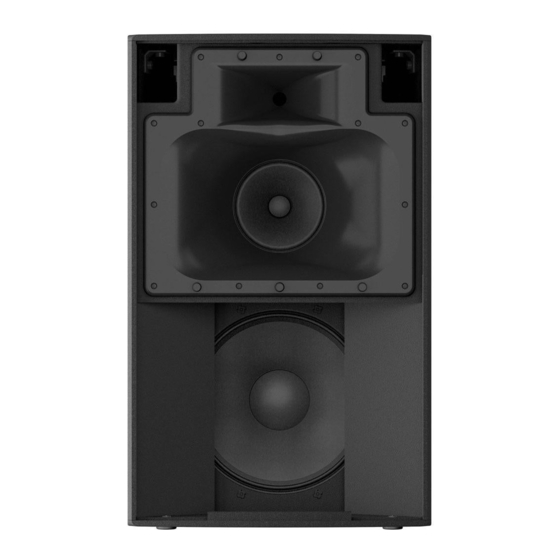Yamaha DZR315 소유자 매뉴얼 - 페이지 15
{카테고리_이름} Yamaha DZR315에 대한 소유자 매뉴얼을 온라인으로 검색하거나 PDF를 다운로드하세요. Yamaha DZR315 31 페이지. Powered loudspeakers/subwoofer
Yamaha DZR315에 대해서도 마찬가지입니다: 소유자 매뉴얼 (31 페이지), 소유자 매뉴얼 (31 페이지), 소유자 매뉴얼 (31 페이지)

Cardioid Mode Settings
Arrange DXS-XLF(-D) series speakers (hereinafter referred to as DXS-XLF(-D)) so that they are facing in opposite
directions. Configure the cardioid mode setting on the screen. (See !2 on page 10.) All other settings (LEVEL,
POLARITY, LPF etc.) should be configured to the same settings.
NOTE
• Use the same DXS-XLF(-D) model, and the same input signal. You can also set the [THRU/DSP OUT] switch to [THRU] to use in a sequence
connection. See the example arrangements below.
• In order to maximize the cardioid characteristics, position the cabinets at least 1.2 m away from walls.
Example arrangement with two units side by side
From
the mixer
To the DXS-
XLF(-D) on
the right
CARDIOID settings
Example arrangement
with three units side
by side
From
the mixer
To the DXS-
XLF(-D) in
the center
CARDIOID settings
From the mixer
Audience
To the DXS-XLF(-D)
on the right
From the mixer
Audience
To the full-range
speakers
From the
DXS-XLF(-D)
on the left
Stage
From the DXS-XLF(-D)
on the left
Stage
Subwoofer
To the full-range speak-
ers (when full-range
speakers are placed
after subwoofers)
From the
DXS-XLF(-D)
in the center
15
